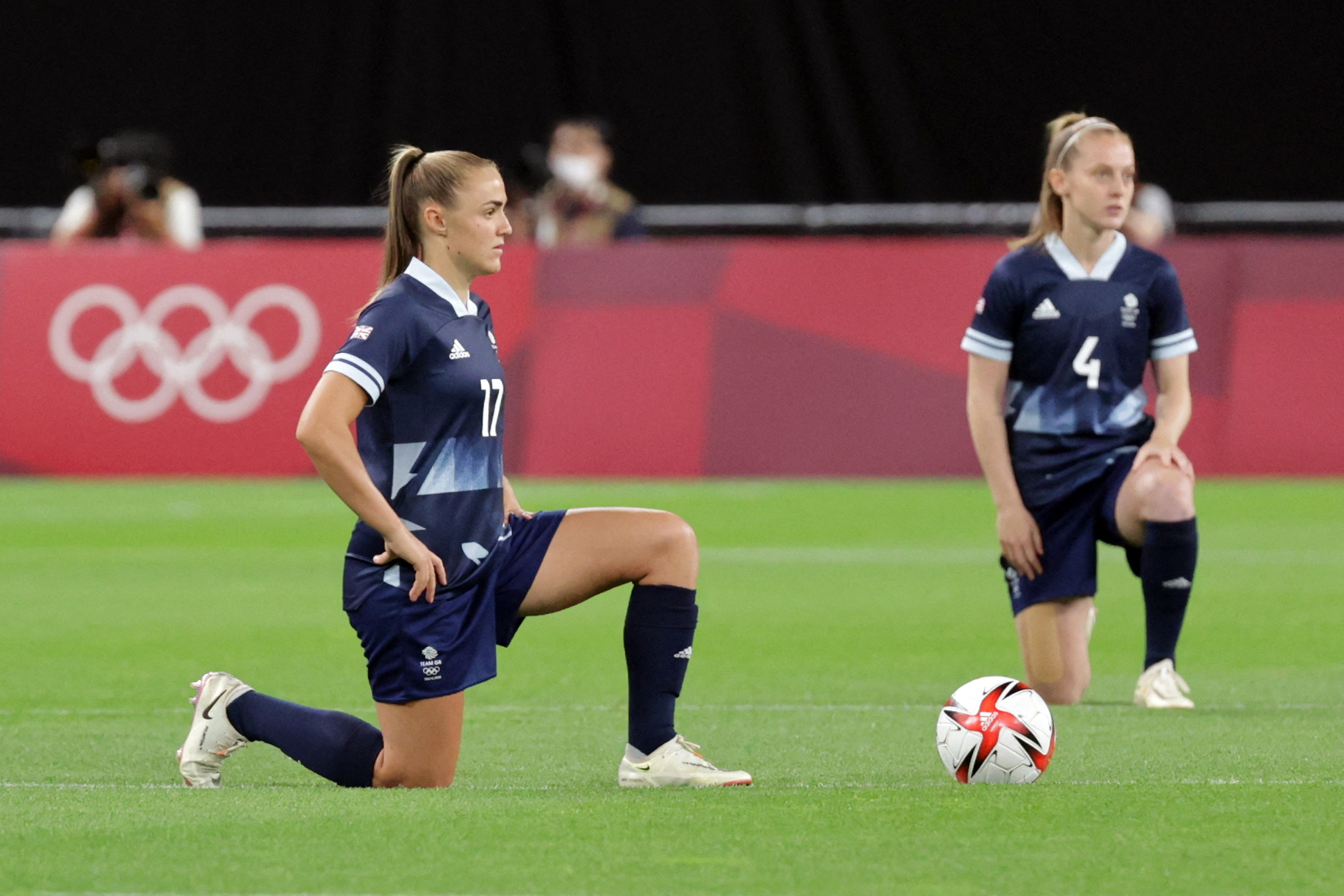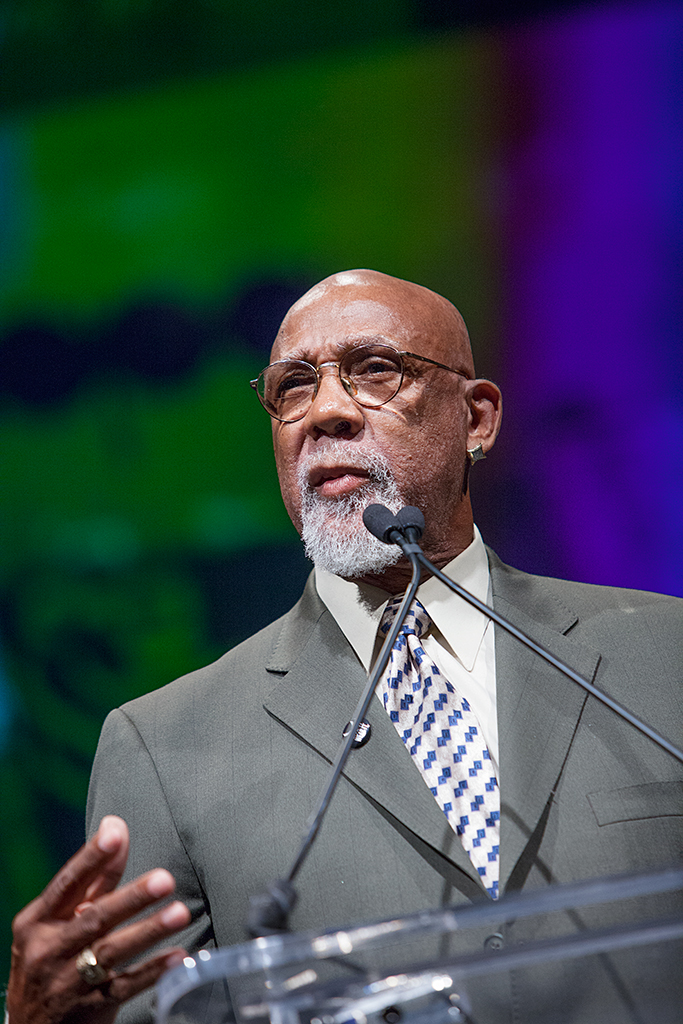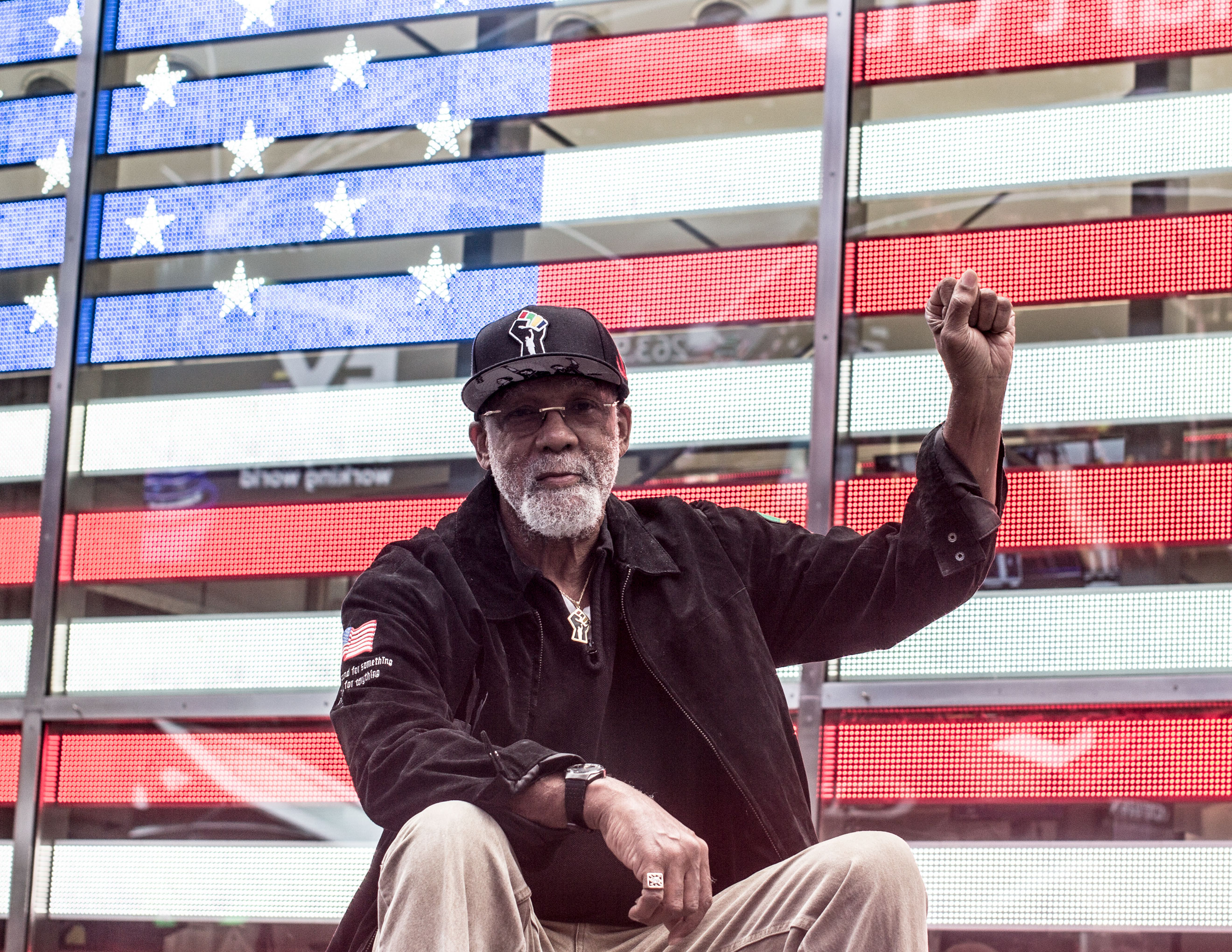Their Black Power Protest Stunned the World in 1968. Today, Politics Are Still Taboo at the Olympics.
July 23, 2021He wore beads on his neck to protest the lynching of Black people in America. He and his teammate stood shoeless on the medal stand, their black-socked feet a symbol of Black poverty. And when the U.S. national anthem rang, they raised their black-gloved fists into the air to symbolize unity.
At the 1968 Mexico City Olympics, Tommie Smith and John Carlos, two Black runners, turned a hallowed stage of the games into an arena for social justice.
Their action stunned the 50,000 live spectators—and many more watching the games on television—and has continued to reverberate in a sporting world grappling with the place of politics in stadiums, on football fields and on racetracks.
At a time when Olympic organizers enforced its ban on politics with zeal, the moment of defiance changed everything.
“Once it’s done for society to see, they could never erase it,” Carlos said in an interview with VICE World News.
53 years after the gesture upended what was expected to be a politically neutral event, Olympic organizers have again come under pressure to make a call on whether, and how, athletes should be allowed to make political statements at the games.
This time, the stakes were raised after a year of worldwide protests in the Black Lives Matter movement spurred athletes to engage in activism. Even before the Tokyo Games start on Friday, some athletes have made clear that Tokyo 2020 was more than a game of athleticism—British, Chilean, American, and Swedish soccer players took a knee before their Wednesday matches.
How such demonstrations play out over the next two weeks, and how Olympic organizers and members of the public respond to them, may help set the tone and expectations for other mega-sporting events to come.

After Carlos and Smith raised their fists on the podium in Mexico City, the U.S. team was censured by the International Olympic Committee (IOC). Public opinion was overwhelmingly disapproving of the Black runners’ act. TIME Magazine called it “painfully petty” and described the scene as “angrier, nastier, uglier,” a play on the Olympics’ motto of “Faster, Higher, Stronger.”
But following the police killing of George Floyd last year, sports events from Wimbledon to Formula 1 to NFL have allowed—or tolerated—protesting statements. Although polls suggest some viewers are turned off by such gestures, they are now a common sight at sporting events featuring U.S. athletes.
Even the IOC, which for decades had upheld a sweeping ban on all political actions during the games, relaxed its rules this year to allow athletes to demonstrate before and after competing, as well as at press conferences. The revision, while significant, still does not allow athletes to voice political beliefs during games, at victory stands, or ceremonies.
The Olympics consider themselves a nonpolitical entity that celebrates international unity, and the Olympic Charter forbids any kind of “demonstration or political, religious or racial propaganda” in Olympic sites.
But as with official protest zones set up at every Olympics since the 2000 Sydney Games, the idea of designated windows for speaking your mind has struck some as antithetical to activism aimed at defying conventions.
“Athletes have to go in the back room, in the dark, in the shadows, and make their statement,” Carlos said, calling the rule “ludicrous.”
“No one has the right to tell them they shouldn’t announce they’re dissatisfied with the way they’re being treated as a human being,” he said.

Akilah Carter-Francique, associate professor of African American studies, who researches the intersection of sport and social change at San Jose State University, said we should expect to see “athletes utilize their platform, despite the rule.”
“In the U.S., we’ve heard some commentary that athletes should just be athletes, the notion of ‘shut up and dribble,’” she told VICE World News. “But I think we have to begin to understand that some of the individuals who have the greatest perspective of what is happening in our nation, and in our world, are athletes, because they travel from state-to-state, from country to country.”
Jules Boykoff, a political scientist who studies the Olympics, described it as “an extended Black Lives Matter moment.”
“I think when you combine that with other really important elements of social activism, like the Me Too movement, or indigenous activism around pipelines [in the U.S.], it’s shifted space for these athletes, making it a little bit easier to become an athlete activist,” he told VICE World News.
After taking a stand at the Mexico City Games, Carlos experienced great economic fallout and backlash. He and Smith were suspended by the U.S. team, received death threats and would struggle to find steady jobs for years. The night after he raised his fist, he said he “went to sleep employed,” and woke up unemployed.
He struggled to put food on the table. His family suffered, too. Once word got around in his children’s schools that they were related to him, his kids were treated with hostility. His first wife, Kim, would take her life in 1977 “as a result of the stresses and strains that we had upon the family at the time,” he said.
Carlos said he received no support from the IOC in the aftermath of his protest. He said they didn’t care about him unless it was time to go make money for them.
“I tell people they have the Olympics every four years because it takes that long for them to count the money. By the time they count the last dollar, it’s time to start up for the games again,” he said.
Boykoff said the IOC had “long lived under the guiding fiction that the Olympics are not political” and upheld its rules to maintain control. But he also noted that there could be geopolitical reasons for keeping the ban before the Beijing Winter Olympics next year.
“If they open the barn door of dissent right now, there could be all manner of athlete activism in Beijing, whether you’re talking about the ethnic Uyghurs, what happened in Hong Kong or Tibet. And who knows what can happen there,” he said.
But some have continued to argue that sports should be kept free from overt political messages, and that the Olympics should be an unadulterated space of human physical achievement.
Shawn Klein, a professor on sports philosophy and ethics at Arizona State University, said sports could bring about positive change in human rights. He believes that Olympism itself is a political statement about peace and equality, but he also thinks that by allowing political activism within the games, it detracts from this message of universal peace.
“In terms of the divisiveness of politics: we treat each other with less respect and less tolerance. We dismiss each other as wrong and evil, rather than as people that we disagree with,” he told VICE World News.
He also believes that by expecting athletes to take a political stance, an unfair amount of pressure may be heaped on their shoulders to emulate good role models. “It puts a lot of pressure on them to act in ways that may not be authentic to who they are,” he said.

To Carlos, making a statement on the victory stand was a given, but he also called on athletes to go beyond mere symbolism.
“What do you have in terms of the depth behind that statement? Do you have the knowledge to elaborate in front of a camera or if they pull you over to ask you a question and ask you to elaborate on why it's necessary to make a statement?” he said.
On Wednesday, the IOC unveiled a new motto. Thomas Bach, the president of the governing body, said it had to adapt to the times. With the addition of one word, the new catchphrase now reads: “Faster, Higher, Stronger - Together.”
